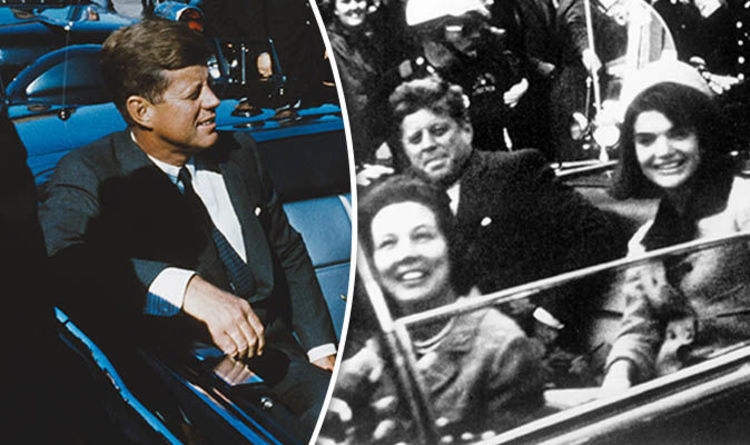November 22, 1963– President John F. Kennedy is assassinated during a visit to Dallas, Texas. His death caused intense mourning in the United States and brought Vice President Lyndon Johnson to the presidency. Kennedy’s untimely death also left future generations with a great many “what if” questions concerning the subsequent history of the Cold War. In the years since Kennedy’s death, a number of supporters argued that had he lived he would have done much to bring the Cold War to a close. Some have suggested that he would have sharply curtailed military spending and brought the arms race under control. The most persistent claim, which served as the centerpiece of Oliver Stone’s 1991 film JFK, is that Kennedy would have withdrawn U.S. troops from Vietnam after being re-elected in 1964. Stone went on to charge that right-wing militants in the U.S. government coordinated the assassination plot. It is difficult to say what Kennedy would have done had he not been killed in November 1963, but the arguments raised by Stone and others do not seem supported by the available evidence. During his brief presidency, Kennedy consistently requested higher military spending, asking for billions in increased funding. After the humiliating defeat at the Bay of Pigs in Cuba, his administration approved Operation Mongoose, a CIA program that involved plots to destabilize the communist government in Cuba. There was even discussion about assassinating Cuban leader Fidel Castro. In Vietnam, Kennedy increased the number of U.S. advisers from around 1,500 when he took office, to more than 16,000 by the time of his death. His administration also participated in the planning of the coup that ultimately overthrew South Vietnamese President Ngo Dinh Diem, who was murdered by his own military just three weeks prior to Kennedy’s assassination. If Kennedy was going to become less of a cold warrior after 1964, there was little to suggest this change prior to November 22, 1963.
November 22, 1963– President John F. Kennedy is assassinated during a visit to Dallas, Texas. His death caused intense mourning in the United States and brought Vice President Lyndon Johnson to the presidency. Kennedy’s untimely death also left future generations with a great many “what if” questions concerning the subsequent history of the Cold War. In the years since Kennedy’s death, a number of supporters argued that had he lived he would have done much to bring the Cold War to a close. Some have suggested that he would have sharply curtailed military spending and brought the arms race under control. The most persistent claim, which served as the centerpiece of Oliver Stone’s 1991 film JFK, is that Kennedy would have withdrawn U.S. troops from Vietnam after being re-elected in 1964. Stone went on to charge that right-wing militants in the U.S. government coordinated the assassination plot. It is difficult to say what Kennedy would have done had he not been killed in November 1963, but the arguments raised by Stone and others do not seem supported by the available evidence. During his brief presidency, Kennedy consistently requested higher military spending, asking for billions in increased funding. After the humiliating defeat at the Bay of Pigs in Cuba, his administration approved Operation Mongoose, a CIA program that involved plots to destabilize the communist government in Cuba. There was even discussion about assassinating Cuban leader Fidel Castro. In Vietnam, Kennedy increased the number of U.S. advisers from around 1,500 when he took office, to more than 16,000 by the time of his death. His administration also participated in the planning of the coup that ultimately overthrew South Vietnamese President Ngo Dinh Diem, who was murdered by his own military just three weeks prior to Kennedy’s assassination. If Kennedy was going to become less of a cold warrior after 1964, there was little to suggest this change prior to November 22, 1963.
0 Comments
0 Shares
747 Views




